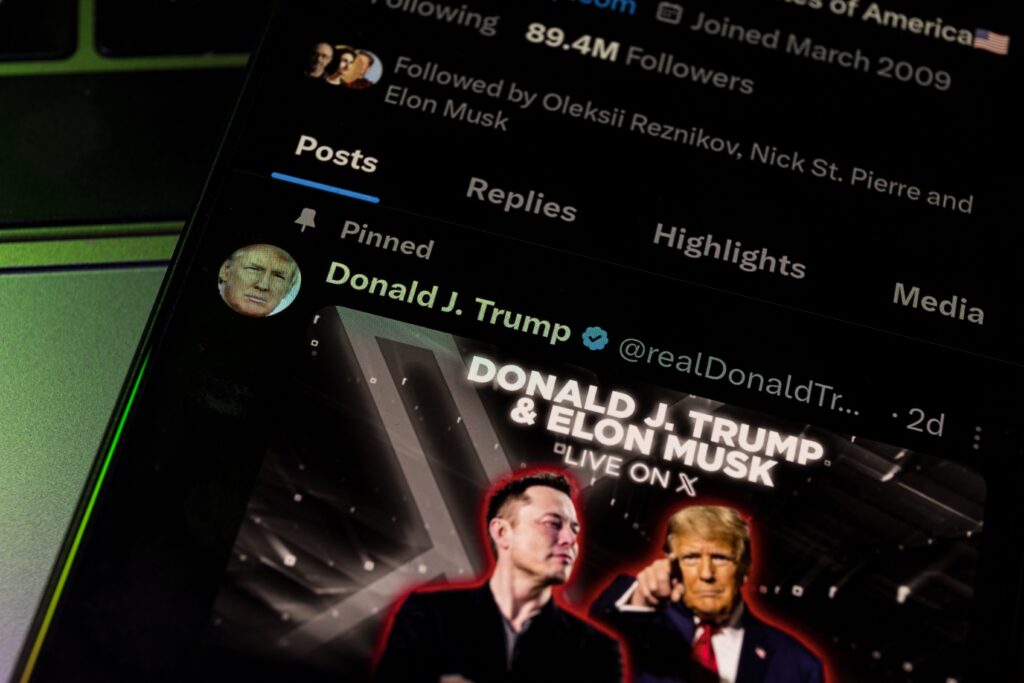WASHINGTON — Elon Musk, the billionaire CEO of Tesla and SpaceX, participated in a phone call on Tuesday between President-elect Donald Trump and Ukrainian President Volodymyr Zelenskyy. The call, which marked the first direct conversation between the two leaders since Trump’s election, has raised questions about Musk’s growing influence in U.S. politics and his potential role in shaping foreign policy during the upcoming Trump administration.
According to reports from Axios and other news outlets, Musk’s participation in the call was unplanned. He reportedly walked into the room while Trump and Zelenskyy were speaking and was invited by Trump to join the conversation. While Zelenskyy’s spokesperson described the call as “positive,” neither he nor Musk shared specific details about the discussion. Zelenskyy later tweeted that he had an “excellent call” with Trump, congratulating him on his “historic landslide victory,” but did not mention Musk’s unexpected involvement.
Musk’s appearance on the call is notable because of the critical role his company, SpaceX, has played in supporting Ukraine during the ongoing war with Russia. Since Russia’s invasion in 2022, much of Ukraine’s telecommunications infrastructure has been destroyed, and Musk’s Starlink satellite internet service has become a lifeline for maintaining communications. Zelenskyy noted that he was using Starlink during the call, and Musk reportedly offered to send additional Starlink terminals to Ukraine to further support its efforts.
Neither Musk nor spokespeople for Trump or Zelenskyy responded immediately to requests for comment.
Musk’s Growing Influence in the Trump Administration
Musk’s participation in such a high-profile call highlights his increasing influence in U.S. politics. In his victory speech, Trump referred to Musk as “a star,” signaling that the tech billionaire will play a prominent role in the new administration. Musk, who poured over $100 million into supporting Trump’s election, is expected to have significant sway in shaping both domestic and foreign policy.
However, Musk’s growing prominence in political circles raises concerns about potential conflicts of interest. His companies, particularly SpaceX, have received billions of dollars in federal contracts, including deals with NASA, the Department of Defense, and other government agencies. SpaceX is a key player in U.S. space exploration efforts and national security, and Musk’s close ties to Trump could create complications, especially as his companies continue to expand and develop cutting-edge technologies. The overlap between Musk’s business interests and his growing political influence is likely to be a point of scrutiny moving forward.
National Security and Geopolitical Risks
Musk’s role in the Ukraine conflict has also placed him at the center of geopolitical tensions, particularly as his Starlink service has been crucial to Ukraine’s defense efforts. Musk initially made Starlink available to Ukrainian forces, but his actions have drawn controversy. He first requested that the Pentagon help cover the cost of providing Starlink to Ukraine, and later suggested that restoring service to Ukrainian military units could escalate the conflict into a world war. These moves have raised concerns about the power a private individual, with such influence and resources, can have on international military strategy.
Compounding these concerns are reports indicating that Musk has had ongoing communication with Russian President Vladimir Putin. According to The Wall Street Journal, Musk and Putin have discussed a variety of issues, including business and geopolitical matters, since late 2022. This raises alarm among U.S. lawmakers, particularly given the context of Russian interference in U.S. elections and ongoing efforts to undermine U.S. democracy. Musk’s ownership of X (formerly Twitter) and his public promotion of pro-Trump content during the 2020 election has further fueled concerns about his relationship with Russia and whether it could influence U.S. policy.
Rep. Jim Himes, a Connecticut Democrat and ranking member of the House Intelligence Committee, has called for more transparency regarding Musk’s communications with Putin. “We need to understand the nature of Musk’s interactions with Putin and whether these relationships pose any risks to national security,” Himes said. “This is not just about Musk’s security clearance—it’s about ensuring the integrity of U.S. foreign policy.”
Calls for Investigation into Musk’s Ties to Putin
NASA Administrator Bill Nelson has also expressed concerns about Musk’s reported interactions with Putin. According to The Wall Street Journal, Putin has allegedly asked Musk to refrain from activating Starlink services over Taiwan, as a favor to Chinese President Xi Jinping. Nelson has stated that if these reports are true, they should be investigated, given the potential national security implications. “If Musk has been in regular contact with Putin, it could be a serious issue for U.S. defense and intelligence agencies,” Nelson said. “Such actions, especially by someone with such significant business interests tied to the U.S. government, deserve scrutiny.”
Musk’s influence in both the political and business arenas raises critical questions about the intersection of corporate power, foreign relations, and national security. Given his vast financial interests in the U.S. government’s defense and space sectors, Musk’s expanding role in political affairs is bound to be a point of contention for lawmakers and security officials.
What’s Next for Musk in U.S. Foreign Policy?
Musk’s unexpected involvement in the Trump-Zelenskyy call signals that his influence in U.S. foreign policy will likely continue to grow, particularly in matters related to Ukraine, Russia, and national security. As Ukraine remains engaged in its battle against Russian aggression, Musk’s Starlink service will continue to play a central role in supporting the Ukrainian government’s efforts to maintain communications. His influence, however, may extend far beyond this, as his business ventures and political support for Trump intersect with some of the most pressing national security concerns of the modern era.
Moving forward, the degree to which Musk’s close ties to Trump, his business dealings with the U.S. government, and his foreign relationships impact U.S. policy will remain a topic of intense scrutiny. As one of the wealthiest individuals in the world and a key player in global technology, Musk’s involvement in high-stakes political and diplomatic matters is likely to have far-reaching consequences for the future of U.S. foreign policy and national security.
